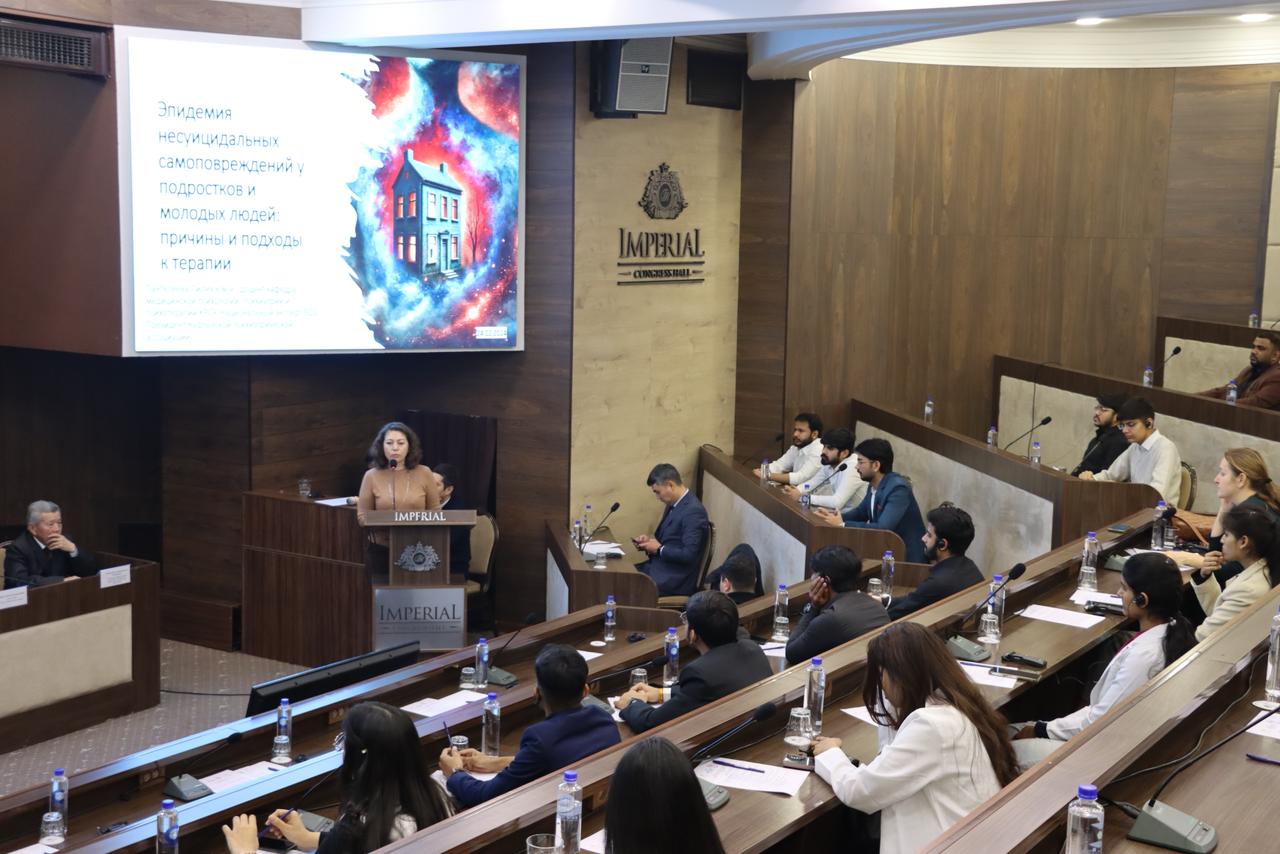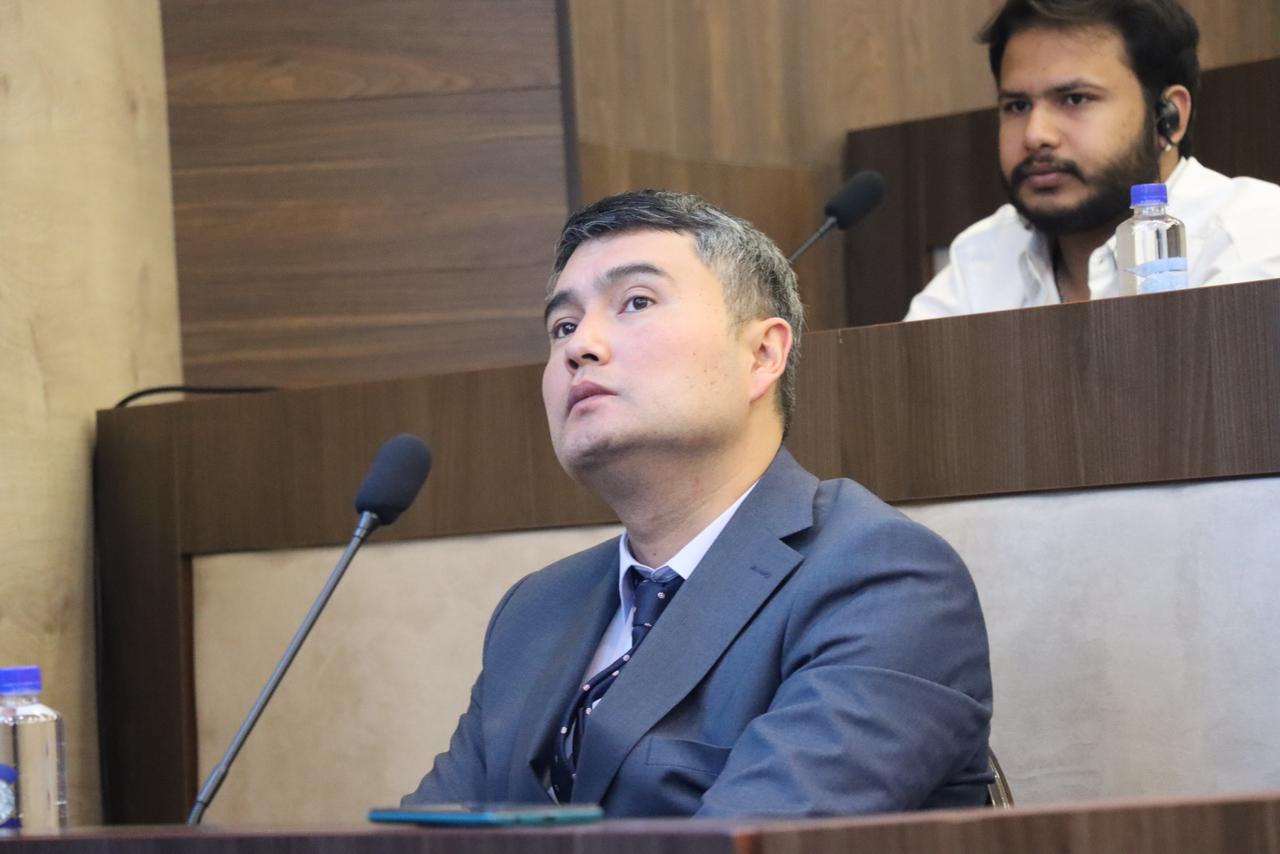
Published
12/25/2024, 17:33On December 24, Bishkek hosted a scientific and practical conference "Challenges and Ways to Reduce Non-Communicable Diseases (NCDs) in Modern Conditions". The event brought together representatives from the medical and scientific fields, as well as public activists and students. Key topics of discussion included the critical impact of harmful habits on youth health and the need to adopt new approaches to NCD prevention.
“Unfortunately, we live in a world where completely eliminating harmful habits is difficult, so a different approach is needed—not drastic measures, but showing people safer alternatives", — emphasized the conference participants.

One of the central points of the meeting was the presentation of an approach that has already been successfully implemented in many countries around the world. Gintautas-Yoazas Kentra, a doctor and deputy chairman of the Public Association "National Association for Harm Reduction of Health Risk Factors "Densaulyk'" (Kazakhstan), spoke about the practical effectiveness of the harm reduction concept (HRC).
“We see that people are not always ready to radically change their lifestyle. Therefore, our task is to offer scientifically grounded alternatives that can help minimize the negative consequences of harmful habits,” noted Kentra.
According to him, even if a person cannot or does not want to give up smoking or certain products, there are options with a lower health risk that can be found.

“When strict bans do not work, we must present accessible solutions that reduce the level of harm and provide a real chance to prevent serious consequences,” he added.
The expert also noted that drastic and total measures often lead to a shadow market and an increase in substandard products, which ultimately worsens public health issues.
One of the main outcomes of the conference was the official presentation of the "OPORA" Association (Union for the Promotion of Optimal Solutions and Alternatives). This organization was registered with the Ministry of Justice of Kyrgyzstan at the beginning of 2024 and aims to promote harm reduction approaches in the country.
“Our association is a space for dialogue between business, government structures and the civil sector. We believe that optimal solutions can only be found together, without rigid dictates and coercion. We strive for the practical implementation of harm reduction principles so that individuals can maintain their comfortable habits while minimizing potential risks", — explained Sardarbek Mayrykov, the executive director of "OPORA".
One of the areas of activity for "OPORA" is the initiation of new scientific and clinical research and collaboration with relevant universities and agencies. According to association representatives, there are plans to expand the network of partners in the near future, as well as to join leading business associations in the country.
“We are open to any business. We are already negotiating membership in larger associations to strengthen our influence and achieve positive changes in the healthcare system more quickly,” — emphasized Sardarbek Mayrykov.

Conference participants adopted a resolution recognizing the need to develop the harm reduction concept and the essential involvement of educational institutions in this process. According to experts, it is the youth who are in the most vulnerable position, as they quickly adopt harmful habits and, due to a lack of objective information, often become victims of advertising myths.
The conference organizers expressed hope that government authorities would continue the dialogue with the expert community, supporting initiatives aimed at preventing non-communicable diseases (NCDs) among the population. They also stated that the activities of the new "OPORA" Association would be another step toward ensuring that all residents of Kyrgyzstan have access to science and technologies that reduce health risks.
“Soft measures are not a weakness; they are a real way to influence people's behavior without causing resistance”, — summarized Gintautas-Yoazas Kentra. — “When a person feels respect for their habits but also sees a clear path to reducing harm, they are much more willing to make changes.”
Thus, conference participants concluded that the fight against non-communicable diseases should not only be conducted through the lens of prohibitions and strict limitations but also take into account the realities of the modern world.

